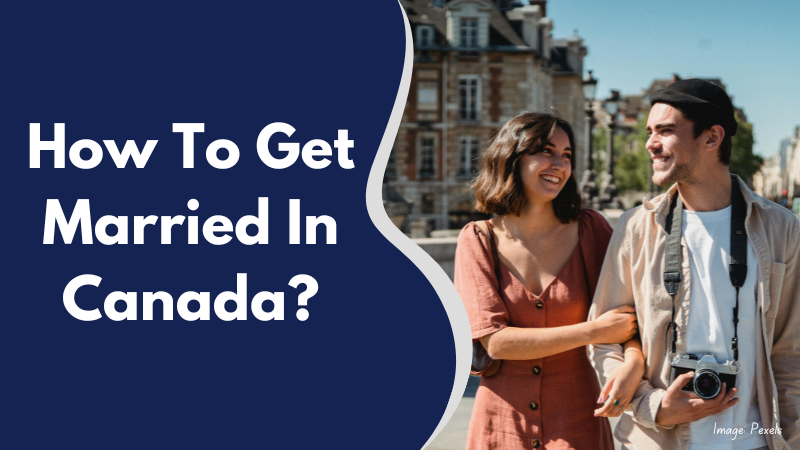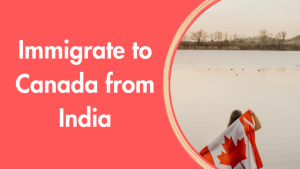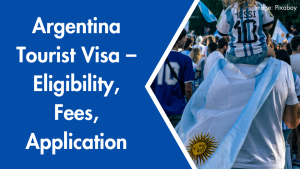To get married in BC, Canada, obtain a marriage licence and have a legal ceremony performed by an authorized official. Getting married in British Columbia (BC) involves a straightforward process.
First, you need to acquire a marriage licence from a local issuer. This licence is valid for three months from the date of issuance. Next, arrange a marriage ceremony conducted by a licensed officiant, which can be a religious representative or a marriage commissioner.
Both partners and two witnesses must be present during the ceremony. Afterward, the officiant will register your marriage with Vital Statistics BC. The process ensures that your union is legally recognized, allowing you to enjoy the benefits and responsibilities of marriage in Canada. Proper planning and adherence to legal requirements make the journey smooth and memorable.
Requirements For Getting Married In BC Canada
Getting married in British Columbia (BC), Canada, involves several key steps and requirements. Understanding these requirements will ensure a smooth and stress-free wedding process. This guide will walk you through the necessary steps, including legal age and consent, proof of identity, and obtaining a marriage license.
Legal Age And Consent
To get married in BC, both parties must meet the legal age requirements. The minimum age to marry without parental consent is 19 years old. If you are under 19, you will need parental or guardian consent. This consent must be provided in writing and properly documented.
Here are the key points for legal age and consent:
- Minimum age without consent: 19 years
- Minimum age with parental/guardian consent: 16 years
- Consent documentation: Written consent form signed by parents or guardians
Parents or guardians must provide their written consent using a specific form provided by the provincial government. This form ensures that the consent is legally recognized and accepted. Without this consent, individuals under 19 cannot legally marry in BC.
Proof Of Identity
Both parties must provide proof of identity to get married in BC. Acceptable forms of identification include government-issued photo ID. This can be a passport, driver’s license, or a birth certificate.
Here are some acceptable documents for proof of identity:
| Document Type | Examples |
|---|---|
| Government-issued photo ID | Passport, Driver’s License |
| Birth Certificate | Original or certified copy |
Ensure the identification documents are current and valid. Expired documents are not accepted. Both parties must present their identification in person when applying for a marriage license.
Marriage License
Obtaining a marriage license is a crucial step in the process. The license is issued by the Vital Statistics Agency in BC. Both parties must apply for the license in person at a marriage license issuer.
Important points about the marriage license:
- Application fee: $100 CAD
- Valid for: 3 months from the date of issuance
- Processing time: Issued immediately upon application
Ensure to apply for the license within three months of your planned wedding date. The license is only valid for 90 days, and you must marry within this period. Remember to bring your proof of identity when applying for the marriage license.
Finding An Officiant
Getting married in British Columbia, Canada, requires careful planning, especially when it comes to finding an officiant. The officiant is crucial as they legally bind you and your partner in marriage. Selecting the right officiant involves understanding the types available and the process of booking one for your special day.
Civil Vs Religious Ceremony
When choosing an officiant, the first decision is between a civil ceremony and a religious ceremony. Each has its own set of officiants and legal requirements.
For a civil ceremony, you can choose a Marriage Commissioner. These are government-appointed individuals authorized to perform non-religious weddings. Civil ceremonies are typically secular and can be held in various locations, such as:
- City halls
- Beaches
- Parks
- Private residences
Religious ceremonies, on the other hand, are conducted by religious officials. These could be:
- Priests
- Rabbis
- Imams
- Ministers
Religious ceremonies can be more personalized and often include traditional rituals and blessings.
Here is a comparison table for a quick overview:
| Aspect | Civil Ceremony | Religious Ceremony |
|---|---|---|
| Officiant | Marriage Commissioner | Religious Official |
| Location | Various (secular) | Religious venues or approved locations |
| Personalization | Limited | High (traditional rituals) |
Types Of Officiants
BC offers different types of officiants to suit your wedding style. Understanding the options helps in making the right choice.
Marriage Commissioners are appointed by the government to officiate civil ceremonies. They are ideal for couples seeking a non-religious, straightforward wedding. Marriage Commissioners are often flexible with locations and can accommodate various settings.
Religious Officials include priests, rabbis, imams, and ministers. These officiants perform religious ceremonies that align with specific faith traditions. They usually conduct ceremonies in places of worship but can also officiate at other approved venues.
For those seeking a more personalized touch, there are Independent Officiants. These individuals might not be affiliated with a religious organization but are certified to perform weddings. They offer customized ceremonies that can blend religious and secular elements.
Here is a quick list of types of officiants:
- Marriage Commissioners
- Religious Officials
- Independent Officiants
Booking An Officiant
Once you have decided on the type of officiant, the next step is booking one. Start early, as popular officiants can be booked months in advance.
For Marriage Commissioners, visit the BC government website. You’ll find a list of available commissioners along with their contact details. Reach out to several commissioners to check their availability and fees.
For Religious Officials, contact your place of worship. They can guide you through the process and provide details on the officiant’s availability. Ensure you discuss any specific religious requirements or traditions you want to include.
If you prefer an Independent Officiant, search online directories or wedding websites. Many officiants have personal websites where you can read reviews, view sample ceremonies, and inquire about their services.
To ensure a smooth booking process:
- Contact the officiant early.
- Check their availability.
- Discuss ceremony details and preferences.
- Confirm fees and payment terms.
- Sign a contract to secure the booking.
Booking the right officiant ensures your wedding day is legally binding and beautifully memorable.
Planning The Ceremony
Planning the ceremony for your wedding in BC, Canada, is an exciting journey. This special day should reflect your love story. Start by organizing the details of your ceremony. Below are key steps to help you plan the perfect event.
Choosing A Venue
Picking the right venue is crucial. BC offers diverse locations to fit any style. From coastal shores to mountain retreats, there is a perfect spot for every couple.
Consider these factors:
- Location: Choose a place that is easy for guests to reach.
- Capacity: Ensure the venue can accommodate all your guests.
- Budget: Pick a venue that fits your financial plan.
- Weather: Have a backup plan for outdoor venues.
Popular venues in BC include:
| Venue | Location | Capacity |
|---|---|---|
| Stanley Park Pavilion | Vancouver | 200 |
| Butchart Gardens | Victoria | 150 |
| Emerald Lake Lodge | Field | 100 |
Selecting Wedding Vendors
Choosing the right vendors is essential. They help bring your vision to life. Here are some key vendors to consider:
- Photographer: Captures memories of your special day.
- Caterer: Provides delicious food for guests.
- Florist: Designs beautiful floral arrangements.
- DJ/Band: Sets the mood with music.
To select the best vendors, follow these steps:
- Research: Look up reviews and portfolios online.
- Meet in Person: Discuss your vision and ask questions.
- Get Quotes: Compare prices and services.
- Book Early: Secure your vendors well in advance.
Top-rated vendors in BC include:
| Vendor | Service | Location |
|---|---|---|
| Modern Romance Photography | Photography | Vancouver |
| Truffles Catering | Catering | Victoria |
| The Flower Factory | Florist | Vancouver |
Creating A Ceremony Script
Writing a ceremony script makes your wedding unique. It reflects your personalities and love story. Here’s how to create a memorable script:
Include these elements:
- Welcome Message: Greet your guests warmly.
- Introduction: Share your journey as a couple.
- Vows: Write personal promises to each other.
- Readings: Include meaningful poems or quotes.
- Ring Exchange: Describe the significance of rings.
- Closing Remarks: Thank your guests and express joy.
Here’s a sample script outline:
Welcome: "Welcome, everyone, to our wedding day. We are thrilled to share this moment with you."
Introduction: "Our journey began five years ago, and today we celebrate our love."
Vows: "I promise to stand by your side through all of life’s adventures."
Readings: "A lovely poem by our favorite author."
Ring Exchange: "These rings symbolize our unending love."
Closing Remarks: "Thank you for being here today. Let's celebrate together!"
Personalize your script to make it truly special. Incorporate your unique love story and values.
Getting Married In Canada: The Ceremony
Getting married in Canada is a magical experience. From the stunning landscapes to the rich cultural heritage, Canada offers the perfect backdrop for your big day. The ceremony is a crucial part of your wedding, filled with traditions and personal moments. This section will guide you through the key elements of the ceremony.
The Procession
The procession marks the beginning of the ceremony. It sets the tone for the entire event. Typically, the groom enters first, followed by the bridal party, and finally, the bride.
Here’s a common order for the procession:
- Officiant
- Groom and Best Man
- Bridesmaids and Groomsmen
- Flower Girl and Ring Bearer
- Bride and Father of the Bride
Important notes for the procession:
- Choose music that reflects your style and emotions.
- Coordinate the timing to ensure a smooth flow.
- Practice during the rehearsal to avoid any mishaps.
The Exchange Of Vows And Rings
The exchange of vows and rings is the heart of the ceremony. This is where you declare your love and commitment to each other.
Key elements include:
- Personal Vows: Write from the heart. Speak about your journey and future.
- Traditional Vows: Choose classic words that resonate with you both.
- Ring Exchange: Symbolizes your eternal bond. Repeat phrases after the officiant.
Tips for a memorable exchange:
- Practice your vows to avoid stumbles.
- Speak clearly and from the heart.
- Hold hands to maintain a connection.
The Signing Of The Marriage License
The signing of the marriage license makes your union official. This legal step involves a few key people and is done immediately after the vows.
Steps to sign the marriage license:
- Officiant: Ensures all details are correct.
- Bride and Groom: Sign the license.
- Witnesses: Two witnesses also sign. They must be over 18.
Important points:
- Ensure the license is filled out correctly.
- Double-check all names and dates.
- The officiant sends the signed license to Vital Statistics.
The signing usually takes place at a small table. Decorate it to match your wedding theme. Capture this moment with photos, as it signifies the beginning of your married life.
After The Wedding
Congratulations on tying the knot in beautiful British Columbia! After the wedding, there’s a list of important tasks to complete. These steps will help you ensure everything is official and updated. Below are the key things to focus on after your wedding day.
Registering Your Marriage
Once you’re married, registering your marriage is the first crucial step. In British Columbia, this process is straightforward. Your marriage officiant will send the completed Marriage Registration to the Vital Statistics Agency. Here are the steps:
- Officiant’s Role: Your officiant submits the Marriage Registration Form.
- Vital Statistics Agency: The form is processed by the agency.
- Marriage Certificate: You can order a marriage certificate once registration is complete.
You may order your marriage certificate online, by mail, or in person. Here’s a quick comparison:
| Method | Processing Time | Cost |
|---|---|---|
| Online | 2-3 weeks | $27 |
| 4-6 weeks | $27 | |
| In Person | Immediate | $27 |
Updating Your Legal Documents
After your marriage is registered, updating your legal documents is essential. Here’s a checklist:
- Driver’s License: Visit an ICBC office with your marriage certificate.
- Health Card: Submit a name change request to BC Services Card.
- Passport: Apply for a new passport with your marriage certificate.
- Bank Accounts: Update your name with your financial institutions.
- Tax Records: Inform the Canada Revenue Agency.
- Insurance Policies: Update your name on all insurance documents.
Ensure you bring your marriage certificate and current identification for all updates. This ensures a smooth transition to your new name and marital status.
Changing Your Name
If you decide on changing your name after marriage, follow these steps:
- Marriage Certificate: Obtain your marriage certificate as proof.
- Social Insurance Number (SIN): Update your SIN with Service Canada.
- Employer Notification: Inform your employer of your name change.
- Utilities and Service Providers: Update your name with utility companies and service providers.
- Memberships and Subscriptions: Change your name on all memberships and subscriptions.
Many institutions allow online updates, making the process easier. Always keep a copy of your marriage certificate handy. This document will be required for many of these changes.
Frequently Asked Questions
What Are The Steps To Getting Married In BC Canada?
Get a marriage license from a BC Vital Statistics Agency. Choose an officiant. Plan your ceremony. Have the ceremony. Register the marriage.
How Long Does It Take To Get A Marriage License In BC Canada?
It usually takes a few days to process a marriage license in BC. Apply at least a week in advance.
How Much Is It To Get Married In Canada?
A marriage license in BC costs $100. Wedding venue and other expenses vary widely. Budget at least $5,000 for a small wedding.
Are Us Marriages Recognized In Canada?
Yes, US marriages are recognized in Canada. Couples must meet Canadian legal requirements. Documentation may be needed for verification.
Conclusion
Planning a wedding in BC, Canada, can be smooth and memorable. Follow the steps outlined for a seamless process. Ensure all legal requirements are met for a stress-free ceremony. Enjoy your special day with peace of mind, knowing everything is in place. Congratulations on your upcoming marriage in beautiful British Columbia!




